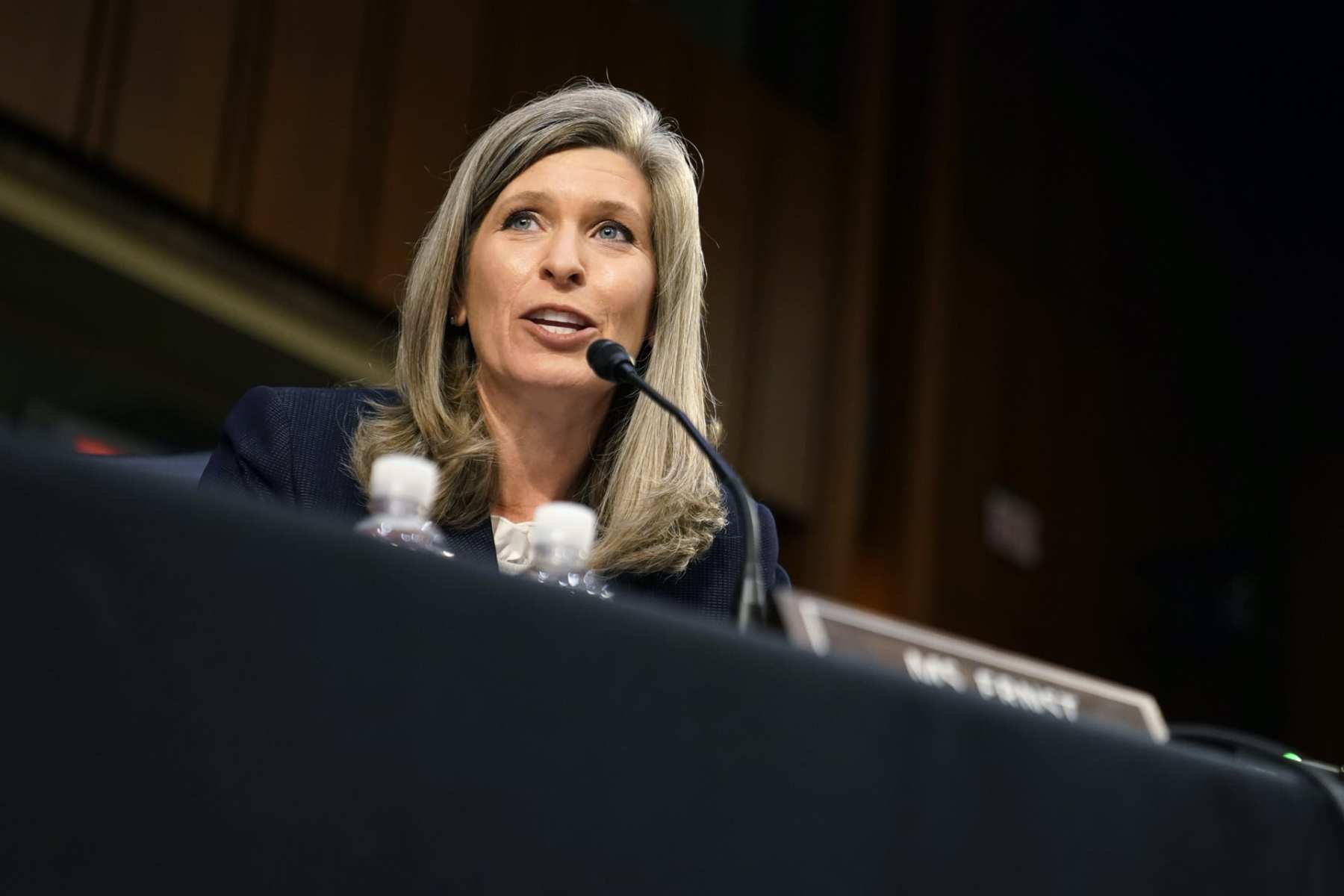In the hours after Supreme Court Justice Ruth Bader Ginsburg’s death in late September, Dawn Howard made $25 donations to five competitive U.S. Senate races — not in her home state of Kentucky, but in Arizona, Iowa, Maine, North Carolina and South Carolina.
Howard, 41, said that in addition to casting her ballot in the Kentucky Senate race for Democrat Amy McGrath, who is trailing Republican Sen. Mitch McConnell in polls, she wanted to “look outward” to more competitive races where Democrats could pick up the three to four seats they need to control the chamber that McConnell currently leads.
“If he’s going to win, can we at least strip him of some power?” Howard said of her rationale.
From the beginning of July through the end of September, Democratic candidates in the dozen most competitive Senate races outraised their Republican opponents by a more than two-to-one margin, according to an analysis by The 19th of the available third quarter campaign filings due to the Federal Election Commission (FEC) by October 15. Many of the races have a Republican woman on defense, a Democratic woman on offense, or both.
More than 6.8 million donors collectively gave more than $1.5 billion to liberal causes and candidates via the Democratic fundraising platform ActBlue during the third quarter — and Senate candidates benefited from the windfall.
Some donors, like Howard, were prompted to open their pocket book by Ginsburg’s death; others by the ongoing racial justice protests, the continuing COVID-19 pandemic and the sustained backlash to Republican President Donald Trump.
WinRed, a Republican online fundraising platform for conservative causes and candidates, brought in $623 million over the same period, they told POLITICO.
The eye-popping fundraising tallies in Senate races this year are in large part due to high-dollar contributions coming from out-of-state donors. In addition, contributions from women have surged in comparison to past elections and skew Democratic, helping the Democratic candidates report fundraising hauls that are dwarfing those of the Republican opponents they are trying to unseat.
In Arizona, Democrat Mark Kelly, the husband of former U.S. House Rep. Gabrielle Giffords, raised $39 million during the third quarter while incumbent Republican Sen. Martha McSally raised $23 million. In Maine, where Democrat Sara Gideon’s lead over Republican Sen. Susan Collins has narrowed in recent weeks, Gideon brought in $39 million versus Collins’ $8.3 million, according to FEC filings.
In many states, such as Iowa, the races have crushed records of the money raised and spent during past Senate elections. Democrat Theresa Greenfield’s campaign brought in $29 million during the third quarter, while incumbent Republican Sen. Joni Ernst’s campaign raised just $7.2 million, according to the government filings. Dark money groups, which do not coordinate with candidates but can spend money supporting or opposing them, have injected another $107 million, with slightly more than half of that sum benefitting Greenfield.
Iowa’s Republican Gov. Kim Reynolds, the first woman to lead the state, said that the massive amount of money has resulted in “back-to-back-to-back ads” against Ernst that have been “a bit of a challenge” for her. But, even as Ernst trailed Greenfield in opinion polls, Reynolds predicted that the one-term Senator would prevail.
“She’s never forgotten who she is, she’s been to all four corners of the state and she really represents the values that Iowans have,” Reynolds said in a recent interview at “Joni’s Ride Across Iowa,” a coronavirus-era version of a charity motorcycle event that Ernst has hosted since she joined the Senate.
“I may come out of this race a little bloody. I may come out a little bruised. I may have a few broken ribs along the way. But for heaven’s sake folks, I am going to cross that finish line first,” Ernst said at the event.
Many candidates, especially incumbents like Ernst, are trying to walk a fine line between the national interest in their race, including its potential impact on Senate control, with more local concerns. Iowa is 90 percent farmland and its top crops are corn and soybeans. Agriculture and wind energy are typically the bread-and-butter topics of congressional campaigns there. Both Ernst and Greenfield grew up on farms.
In their recent debate on Thursday night, it was the most local of Iowan issues, corn and soybeans, that came to the fore.
The moderators asked Greenfield for the “break-even” price of a bushel of corn and Ernst for the “break-even” price of a bushel of soybeans. Greenfield said it would depend on debt, but a break-even price for corn was currently $3.68 to $3.69. “That’s correct,” the moderator responded.
Ernst initially began talking about how Trump’s trade agreements have impacted Iowa’s corn production. “I don’t think you answered my question: what’s the break-even price for soybeans in Iowa?” the moderator responded. “I think you had asked about corn, and it depends on what the inputs are, but probably about $5.50,” Ernst said. “You’re a couple of dollars off, I think here, because it’s $10.05,” the moderator said. “We’d asked for the price of soybeans from you senator, do you want to take another crack at it?” a second moderator asked. “No, thank you,” Ernst said. “Maybe I’m not hearing.”
Ernst’s spokesperson said there were audio issues and Ernst thought she and Greenfield had been asked the same question. Greenfield’s campaign asked supporters on Friday for donations in the amount of $10.05, saying Ernst’s response to the break-even price for soybeans question would “likely go down as one of as one of the worst answers in the history of Iowa debates.”




